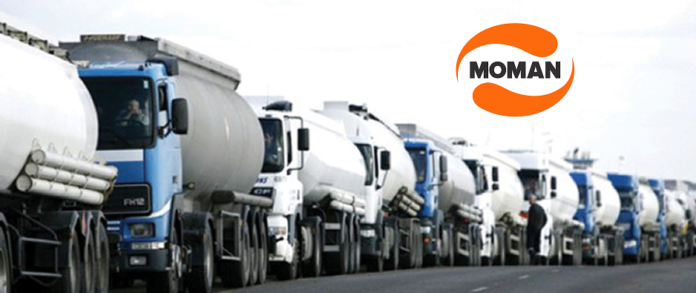The Major Oil Marketers Association of Nigeria (MOMAN) has revealed that smuggling of fuel cost the country billions of naira yearly.
In an exclusive chat with The Daily Times, Executive Secretary, (MOMAN), Mr. Clement Isong, said the practice of smuggling of fuel costs Nigeria billions of naira yearly because of the subsidy paid on it by government.
He stated that he understands and appreciates the challenges facing Nigeria with respect to the smuggling of fuel across the border to neighbouring countries. The MOMAN secretary explained that the body condemns the practice of smuggling of fuel and will support every effort of the government to stop the practice.
“We, however, do not believe that the closure of stations within 20 kilometers of the border is the most effective means of combating smuggling as we believe that broader sustainable solution needed to be interrogated and implemented to finally, resolve the challenge of fuel smuggling”, he said. Meanwhile, Department of Petroleum Resources (DPR) in a public notice signed by it Head, Public Affairs, Mr. Paul Osu, informed members of the public that “the Director of Petroleum Resources has ordered the immediate suspension of operations of all petroleum products, retail outlets within 20kms along Nigeria border area until further notice”.
“Also suspended until further notice is the processing of Application for Approval to construct (ATC) and License to Operate (LTO) within 20kms along Nigeria border areas. “This directive is to complement Federal government efforts at curtailing smuggling of petroleum products across our nation’s border. “By this notice all deports and petroleum products suppliers are hereby advised to suspend supplies to these locations until further notice and it takes immediate effect”.
When asked if actually all petroleum stations 20kms to the border are actually smugglers and what happened to those doing legitimate business whose means of livelihood have been taking away, the spokesman did not give any response. It would be recalled that the Federal government had ordered that fuel stations close to the land borders should no longer get petroleum products.
The directive is coming at a period government is tightening security and ensuring strict compliance with the border closure. In a related development, the Customs Comptroller General, Hameed Ali, in a statement had said no petroleum product, no matter the tank size should be permitted to be discharged in any of those filling stations. The affected oil companies are those located 20 kilometres to the borders. The Nigerian Government is standing on its decision to keep the borders closed after it was announced that the closure would continue till January 2020. Neighbouring countries have pleaded with the government to open the borders as the impact has diverged into a larger problem that is not connected to fuel and rice.
The decision to stop distribution of petroleum products to the filling stations close to the border could affect fuel stations daily operation, communities and threaten the existence of the oil companies. Industries and companies might also be forced to shut down operations or downsize when there is the longer product for the filling stations to meet the demand of the teaming consumers. Just recently, the Nigerian National Petroleum Corporation (NNPC) confirmed that the nation’s economy loses N2 billion daily to fuel smuggling.
This comes as the Federal Government said its border closure decision had led to a reduction in the demand for the product, even as prices for rice and frozen foods keep rising due to restricted supplies. Indeed, the national oil company submitted that it had witnessed a significant drop in Premium Motor Spirit (popularly called petrol) evacuation from the depots since August 22. There had been concerns about the nation’s daily fuel demand, especially when the amount used to offset subsidy payments rose over projected income.


